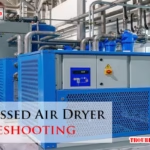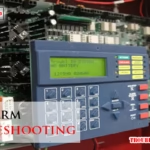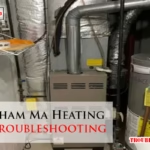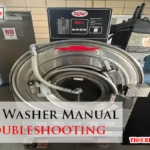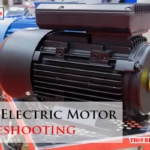Marine air systems are crucial for comfort on any vessel. When these systems fail, it can lead to discomfort and frustration.
Troubleshooting marine air systems can be a daunting task. These systems are complex, with many different components that can cause problems. Understanding the common issues and how to address them is vital. Whether you are an experienced sailor or new to marine systems, knowing how to troubleshoot can save time and money.
In this guide, we’ll explore the common problems you might face and provide practical solutions. This knowledge will help you maintain a comfortable environment on your vessel, ensuring a pleasant journey on the water. Let’s dive into the essentials of marine air systems troubleshooting.

Credit: southernboating.com
Common Issues
Marine air systems play a vital role in maintaining comfort on boats. But, like any system, they can encounter problems. Understanding common issues can help in troubleshooting and fixing them effectively.
Leaks And Blockages
Leaks in marine air systems can cause significant issues. They often occur in hoses, valves, or fittings. Leaks lead to a loss of refrigerant, reducing system efficiency. Regularly check all components for signs of wear or damage.
Blockages can also disrupt the system. Debris or dirt can clog filters and ducts. This restricts airflow and can cause the system to overheat. Clean filters and ducts regularly to avoid blockages. Inspect the system for any dirt buildup or obstructions.
Temperature Fluctuations
Temperature fluctuations indicate a problem with the marine air system. It may struggle to maintain a consistent temperature. This can result from thermostat issues or refrigerant levels. Ensure the thermostat is functioning correctly. Check and adjust refrigerant levels as needed.
Another cause of temperature fluctuations is poor insulation. Ensure proper insulation around ducts and components. This helps maintain a stable temperature. Addressing these issues promptly can prevent further damage to the system.

Credit: mabrupowersystems.com
Essential Tools
Marine air systems keep vessels comfortable and functional. Troubleshooting these systems requires the right tools. Knowing which tools are essential can save time and effort. Let’s explore the key tools needed for effective troubleshooting.
Diagnostic Devices
Diagnostic devices are crucial for identifying issues. Multimeters measure electrical values like voltage, current, and resistance. They help find electrical faults in the system. Temperature sensors check if the air conditioning is cooling correctly. A refrigerant leak detector identifies gas leaks in the system. These tools provide accurate data for pinpointing problems.
Repair Kits
Repair kits are vital for fixing identified issues. These kits usually include tools like wrenches, screwdrivers, and pliers. They also contain replacement parts such as filters and belts. Having a comprehensive repair kit ensures readiness for various repairs. A well-equipped kit makes the troubleshooting process smoother and faster.
Initial Inspections
Conducting initial inspections is crucial in troubleshooting marine air systems. These inspections help identify obvious issues and ensure the system is safe for more detailed testing. Below, we will discuss visual checks and system tests, which are key components of initial inspections.
Visual Checks
Begin with a thorough visual inspection of the system. Look for any signs of damage or wear. Check all hoses and connections for leaks or cracks. Examine the air filters for dirt and debris.
- Inspect the compressor for oil leaks.
- Ensure the belts are tight and not worn out.
- Check the electrical connections for corrosion or loose wires.
Pay attention to any unusual sounds or smells that could indicate a problem. A quick visual check can often reveal issues that need immediate attention.
System Tests
After completing the visual checks, perform basic system tests to identify potential issues. Start by turning on the system and observing its performance.
- Check if the system starts smoothly.
- Monitor the airflow and temperature output.
- Listen for any unusual noises during operation.
Use a thermometer to measure the output air temperature. Compare it with the expected range. If the temperature is too high or too low, it may indicate a problem. Record your findings for further analysis.
If the system fails to start or shows poor performance, further diagnostics may be needed. Use these initial inspections to guide your next steps in troubleshooting.
Air Compressor Problems
Air compressors are vital components in marine air systems. They ensure compressed air is available for various tasks on board. Over time, air compressors can face issues that disrupt their performance. Two common problems are low pressure and overheating. Understanding and troubleshooting these issues can enhance the efficiency of your marine air system.
Low Pressure
Low pressure in an air compressor can lead to several operational issues. It reduces the efficiency of the entire air system. Here are some common causes and solutions for low pressure:
- Clogged Air Filters: Dirty or clogged filters restrict airflow. Clean or replace the filters regularly.
- Leaks in the System: Inspect for leaks in hoses and connections. Use soapy water to find leaks.
- Worn Out Components: Check for worn-out seals, valves, and gaskets. Replace any damaged parts.
- Incorrect Pressure Settings: Ensure the pressure settings are correct for your system. Adjust if necessary.
Maintaining proper pressure is essential. Regular inspections and maintenance can prevent low pressure issues.
Overheating
Overheating is another common problem in marine air compressors. It can cause serious damage if not addressed promptly. Here are some potential causes and solutions:
- Insufficient Cooling: Ensure adequate ventilation around the compressor. Clean the cooling fins and fan blades.
- Lubrication Problems: Check the oil levels and quality. Use the recommended oil type and change it regularly.
- High Ambient Temperature: Monitor the operating environment. Move the compressor to a cooler location if possible.
- Overloading: Avoid running the compressor continuously at maximum capacity. Allow for cooling periods.
Preventing overheating involves regular monitoring and maintenance. Addressing these issues early can prolong the life of your air compressor.
Refrigerant Concerns
Marine air systems rely on the proper function of refrigerants to maintain efficient cooling. Issues with refrigerants can lead to a host of problems, from inadequate cooling to complete system failure. Understanding and addressing refrigerant concerns is crucial for the longevity and performance of your marine air system.
Leak Detection
Leaks in the refrigerant system can cause significant issues. Detecting these leaks early is essential. Here are some methods:
- Visual Inspection: Look for signs of oil stains around joints and connections.
- Electronic Leak Detectors: These devices can sense refrigerant gases and indicate the presence of a leak.
- Soap Bubble Test: Apply soapy water to suspected areas and watch for bubbles.
Each method has its advantages. Combining methods can provide the best results.
Recharging Systems
Recharging the refrigerant system can restore its cooling efficiency. Follow these steps for a proper recharge:
- Identify the Correct Refrigerant: Check the manufacturer’s specifications.
- Use Proper Equipment: Ensure you have the right gauges and recharging kit.
- Follow Safety Protocols: Wear gloves and goggles. Work in a well-ventilated area.
- Connect the Equipment: Attach the gauges to the low-pressure port.
- Add Refrigerant: Slowly add the refrigerant while monitoring the pressure gauges.
Overcharging can cause damage. Always adhere to recommended levels.
Electrical Issues
Electrical problems can cripple marine air systems. They often result in significant downtimes. Understanding the common electrical issues helps in troubleshooting. This section focuses on faulty wiring and sensor failures.
Faulty Wiring
Faulty wiring is a frequent cause of electrical issues. It can lead to inconsistent power supply. Loose connections or damaged wires are common culprits.
- Check for any visible wire damage.
- Tighten any loose connections.
- Replace any frayed or broken wires.
Using a multimeter helps in identifying faulty wiring. Ensure all connections are secure. Proper insulation of wires is crucial. This prevents short circuits and fire hazards.
Sensor Failures
Sensor failures can disrupt marine air systems. Sensors monitor various parameters. When they fail, the system may malfunction.
- Inspect sensors for physical damage.
- Clean sensors to remove debris.
- Test sensors with a multimeter.
Common sensor problems include:
- Temperature sensor faults
- Pressure sensor issues
- Humidity sensor failures
Replacing faulty sensors restores system functionality. Regular maintenance reduces the risk of sensor failures.
Preventive Maintenance
Preventive maintenance is crucial for keeping marine air systems running smoothly. Regular checks and updates ensure that your equipment performs efficiently. This approach helps in avoiding unexpected breakdowns and costly repairs. Below, we will discuss key aspects of preventive maintenance.
Regular Servicing
Regular servicing is the backbone of preventive maintenance. It involves scheduled inspections and tune-ups to keep the system in top condition. During servicing, technicians check for common issues like leaks, clogs, and wear and tear.
Here are some tasks performed during regular servicing:
- Inspecting air filters
- Cleaning coils
- Checking refrigerant levels
- Examining electrical connections
These steps help in identifying minor problems before they escalate. Regular servicing boosts the lifespan of the marine air system.
Component Replacements
Component replacements are essential to maintain system efficiency. Over time, parts like air filters, belts, and valves may wear out. Replacing them at the right time prevents bigger issues.
Key components to monitor include:
| Component | Replacement Frequency |
|---|---|
| Air Filters | Every 3-6 months |
| Belts | Annually |
| Valves | Every 2 years |
Regular component replacements ensure the system runs without interruptions. It minimizes the risk of unexpected failures.
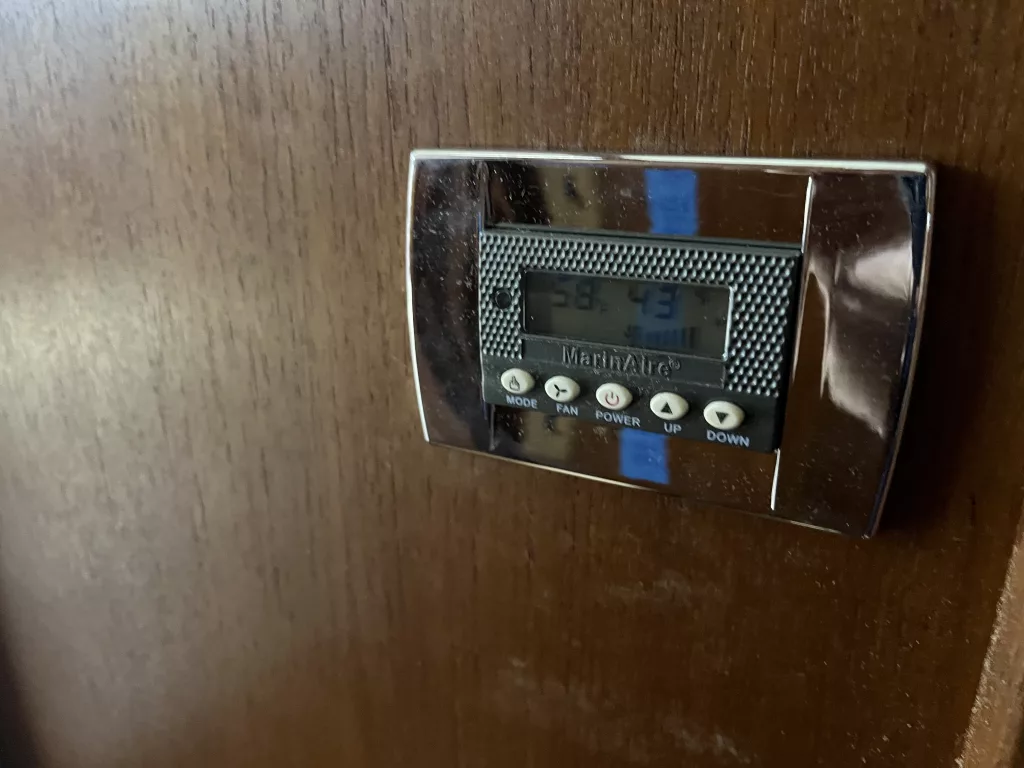
Credit: boatac.net
Professional Help
Marine air systems are complex and vital to your vessel’s comfort and safety. While regular maintenance can solve many issues, sometimes you need professional help. Knowing when to call experts and how to choose the right service provider can save time and money.
When To Call Experts
Not all issues can be fixed by a simple DIY approach. If you notice any of the following signs, it’s time to call in the professionals:
- Unusual noises: Strange sounds can indicate mechanical issues.
- Inconsistent temperatures: If your system can’t maintain a steady temperature, it needs expert attention.
- Frequent cycling: A system that turns on and off repeatedly may be malfunctioning.
- Leaks: Any sign of leaks should be addressed immediately to prevent further damage.
Choosing A Service Provider
Choosing the right service provider is crucial for effective troubleshooting. Consider the following factors:
| Factor | Details |
|---|---|
| Experience | Look for providers with years of experience in marine air systems. |
| Certifications | Ensure they have relevant certifications and licenses. |
| Customer Reviews | Read reviews to gauge customer satisfaction and service quality. |
| Response Time | Choose a provider who can respond quickly to emergencies. |
| Pricing | Request quotes to compare costs, but don’t sacrifice quality for price. |
By considering these factors, you can find a reliable service provider to handle your marine air system issues effectively.
Frequently Asked Questions
How Do You Diagnose A Marine Air System Issue?
First, check for any error codes. Look for unusual noises or leaks.
What Causes Marine Air Systems To Stop Cooling?
Common reasons include low refrigerant levels, clogged filters, or faulty compressors.
Why Is My Marine Air System Making Noise?
Noise can be due to loose parts, worn-out bearings, or debris in the system.
How Often Should I Service My Marine Air System?
Service your system every 6 months. Regular maintenance ensures efficient operation.
What Should I Do If My Marine Air System Leaks Water?
Check for clogged drain lines. Ensure the unit is level and not tilted.
Conclusion
Troubleshooting marine air systems can seem challenging. Follow the steps outlined. Regular maintenance helps avoid common issues. Always check filters, ducts, and connections. Listen for unusual sounds. These steps ensure your system runs smoothly. For persistent problems, seek professional help.
Regular care saves time and money. Keep your marine air systems efficient. Happy sailing!


